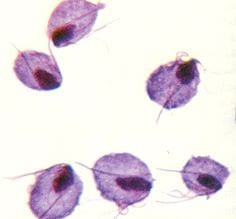
Greenfinches are reported most frequently, but potentially any bird can be infected, including pigeons and doves and some birds of prey. The trichomonad parasite lives in the upper digestive tract of the bird, and its actions progressively block the bird’s throat making it unable to swallow food, thus killing it by starvation.
Use feeders with drainage holes to avoid moisture building up
– Use more than one feeding site to reduce the number of birds in one place
– Rotate feeders around several locations to ‘rest’ each spot to prevent build up of infection on the ground underneath.
– Clean and disinfect feeders and water baths regularly, rinsing thoroughly and allowing to air dry completely – this itself will kill some diseases
– Keep the bucket and brush you clean feeders with outside and using just for this purpose
– Sweep up droppings and spilt or old food and disposing of it carefully in an outside bin
– Change the water in baths frequently – ideally daily
– Wash your hands carefully afterwards
No effective treatment can be administered to birds in the wild, because it is impossible to ensure that the infected individuals receive an adequate dose and that healthy birds do not pick up the medicine.
At Pigeon Patrol, we manufacture and offer a variety of bird deterrents, ranging from Ultra-flex Bird Spikes with UV protection, Bird Netting, 4-S Gel and the best Ultrasonic and audible sound devices on the market today.
Contact us at 1- 877– 4– NO-BIRD, (604) 585-9279 or visit our website at www.pigeonpatrol.ca
Bird Gone, Pigeon Gone, Seagull Gone, Pigeon issue, pigeon spikes, 1-877-4NO-BIRD, 4-S Gel, Bird Control, Pigeon Control, bird repellent, Bird Spikes, sonic bird repellent, stainless steel bird spikes, bird spikes Vancouver, Ultra Sonic Bird Control, Bird Netting, Plastic Bird Spikes, Canada bird spike deterrents, Pigeon Pests, B Gone Pigeon, Pigeon Patrol, pest controller, pest control operator, pest control technician, Pigeon Control Products, humane pigeon spikes, pigeon deterrents, pigeon traps, Pigeon repellents, Sound & Laser Deterrents, wildlife control, raccoon, skunk, squirrel deterrent, De-Fence Spikes, Dragons Den, Canada bird spikes, Canada pigeon, pigeon control, pigeon patrol, pigeon. Kill pigeons, crow, starling
